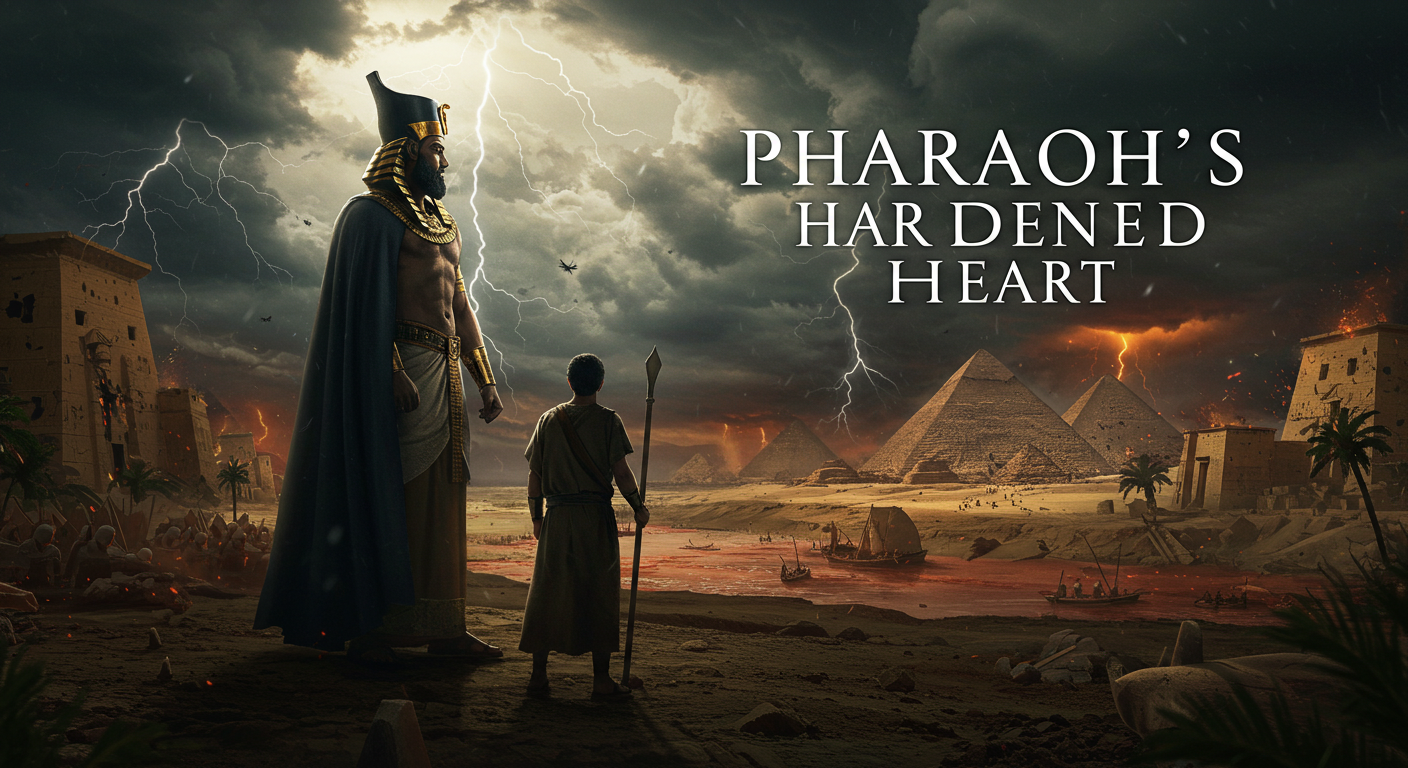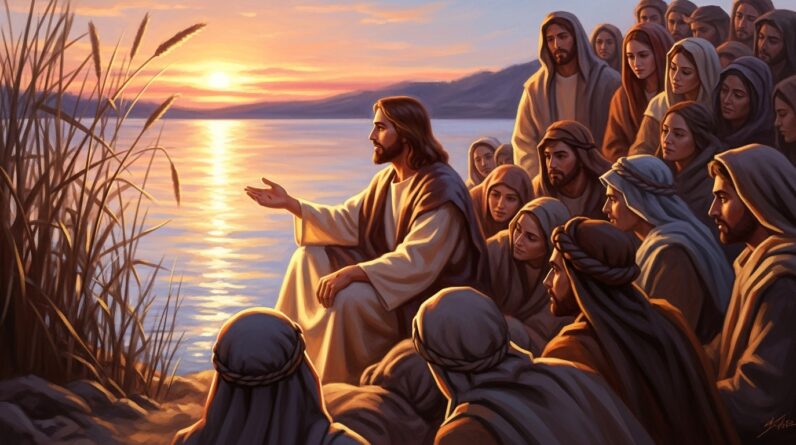Pharaoh’s Hardened Heart: Pride Against God’s Power
In the grand tapestry of history and theology, few tales are as rich and compelling as the story of Pharaoh and his hardened heart. This narrative, steeped in drama, divine intervention, and human fallibility, serves as a timeless lesson of pride, resistance, and the formidable power of the divine. As we unravel this story, we will explore the central theme of “Pharaoh pride” and the grave consequences that followed.
The Historical Context
Before diving into the heart of the story, it’s crucial to set the scene. Ancient Egypt, a civilization marked by astonishing achievements in architecture, culture, and governance, was under the rule of a Pharaoh who was considered both king and god. This duality of power bestowed the Pharaoh with immense authority, often leading to an inflated sense of self-importance. As such, Pharaoh’s resistance to God exemplifies his pride—a resistance that sets the stage for one of the most dramatic encounters in biblical history.
The Call of Moses
The story begins with God calling Moses to be His messenger to Pharaoh, demanding the liberation of the Israelites who were enslaved in Egypt. This momentous task placed Moses at the heart of a divine mission against Pharaoh pride. Moses, armed with God’s promise and power, was to confront the Pharaoh and deliver the message: “Let my people go” Exodus 5:1.
This divine command stood in stark opposition to Pharaoh’s belief in his supremacy and control over the Israelites. For Pharaoh, the notion of a God greater than himself challenging his authority was unthinkable. It was here that the seeds of resistance took root in his heart.
Pharaoh’s Initial Response
Pharaoh’s initial response to Moses and Aaron was dismissive and defiant. “Who is the Lord, that I should obey him and let Israel go? I do not know the Lord, and I will not let Israel go” Exodus 5:2. This bold declaration encapsulates Pharaoh pride—a steadfast refusal to acknowledge any power beyond his own perceived divinity.
This exchange set the tone for a series of confrontations, where Pharaoh’s stubbornness would be tested repeatedly. Each refusal to heed Moses’ words only served to harden his heart further, pushing the narrative towards an inevitable clash between human pride and divine will.
The Cycle of Plagues
In a dramatic escalation, God sent a series of plagues upon Egypt, each one a direct challenge to Pharaoh’s authority and a demonstration of God’s power. From the waters of the Nile turning to blood Exodus 7:20, to the plague of frogs Exodus 8:6, and locusts Exodus 10:13, each plague grew in intensity and devastation.
With each calamity, Pharaoh’s resolve to maintain control was challenged. Yet, his pride would not relent. Instead of recognizing the omnipotence of God, Pharaoh repeatedly attempted to negotiate with Moses, offering partial compliance or quick fixes, only to retract his promises as soon as the plagues subsided.
Hardening of the Heart
One of the most intriguing aspects of this story is the dynamic process of Pharaoh’s heart being hardened. There are moments when the Bible attributes this hardening to Pharaoh himself, such as in Exodus 8:15, and other times it credits God with hardening Pharaoh’s heart, like in Exodus 7:3.
Scholars and theologians have long debated this dual attribution, pondering the balance between divine sovereignty and human free will. A compelling perspective is that God did not rob Pharaoh of his ability to choose, but rather confirmed Pharaoh’s own inclinations and prideful decisions. In this light, Pharaoh pride was not just a personal flaw, but a divinely highlighted trait meant to underscore the narrative’s moral and spiritual lessons.

The Tenth Plague and The Exodus
The climactic moment in this saga arrives with the tenth plague, the death of the firstborn. This plague was a devastating strike against Pharaoh’s household and all of Egypt Exodus 12:29. It was this final act of divine power that overwhelmed Pharaoh’s pride, compelling him to release the Israelites. At last, confronted by the undeniable force of God’s will, Pharaoh relented, allowing Moses to lead the Exodus.
Yet, even then, Pharaoh’s surrender was short-lived. In one last act of defiance, he pursued the fleeing Israelites, only to meet with disaster at the Red Sea Exodus 14:28. Here, Pharaoh pride and resistance met their ultimate defeat, underscoring the futility of opposing divine power.
Moral and Spiritual Lessons
Pharaoh’s story is a cautionary tale about the dangers of pride and the consequences of hardening one’s heart against divine instruction. It serves as a reminder of the limitations of human authority when faced with the immutable power of the divine. Pride, when fueled by arrogance and an unwillingness to recognize a higher power, can lead to one’s downfall.
For modern readers, the story invites reflection on our own lives and the instances where pride blinds us to wisdom and guidance. In a world where self-reliance and individualism are often celebrated, Pharaoh’s tale urges caution, encouraging humility and openness to greater truths beyond our own understanding.
The Legacy of Pharaoh’s Pride
The legacy of Pharaoh pride extends beyond the confines of biblical history. It resonates in various aspects of culture, literature, and spirituality, serving as a universal symbol of stubbornness against enlightened paths. Artistic representations, from paintings to cinema, have continually revisited this iconic showdown, highlighting its enduring relevance.
In essence, Pharaoh’s hardened heart stands as a testament to the enduring struggle between ego and humility, between self-dependence and divine dependence. It challenges us to consider our responses to the external forces and the divine promptings we encounter in our lives.
Conclusion
As we reflect on Pharaoh’s hardened heart and his pride against God’s power, it’s essential to internalize the profound lessons this ancient narrative offers. It is a story that not only speaks of historical events but also addresses the timeless aspects of the human condition. Pride, when unchecked, can prove to be an insurmountable barrier to growth, faith, and enlightenment.
As you ponder the depth of this narrative and its implications for our lives today, remember to remain open, humble, and attuned to the guidance that comes from beyond. In doing so, we move towards a life enriched by insight and wisdom, rather than one bound by the narrow confines of pride.
Explore More
For further reading and encouragement, check out these posts:
👉 7 Bible Verses About Faith in Hard Times
👉 Job’s Faith: What We Can Learn From His Trials
👉 How To Trust God When Everything Falls Apart
👉 Why God Allows Suffering – A Biblical Perspective
👉 Faith Over Fear: How To Stand Strong In Uncertain Seasons
👉 How To Encourage Someone Struggling With Their Faith
👉 5 Prayers for Strength When You’re Feeling Weak

📘 Jesus and the Woman Caught in Adultery – Grace and Mercy Over Judgement
A powerful retelling of John 8:1-11. This book brings to life the depth of forgiveness, mercy, and God’s unwavering love.
👉 Check it now on Amazon
As a ClickBank Affiliate, I earn from qualifying purchases.
Acknowledgment: All Bible verses referenced in this article were accessed via Bible Gateway (or Bible Hub).
“Want to explore more? Check out our latest post on Why Jesus? and discover the life-changing truth of the Gospel!”








